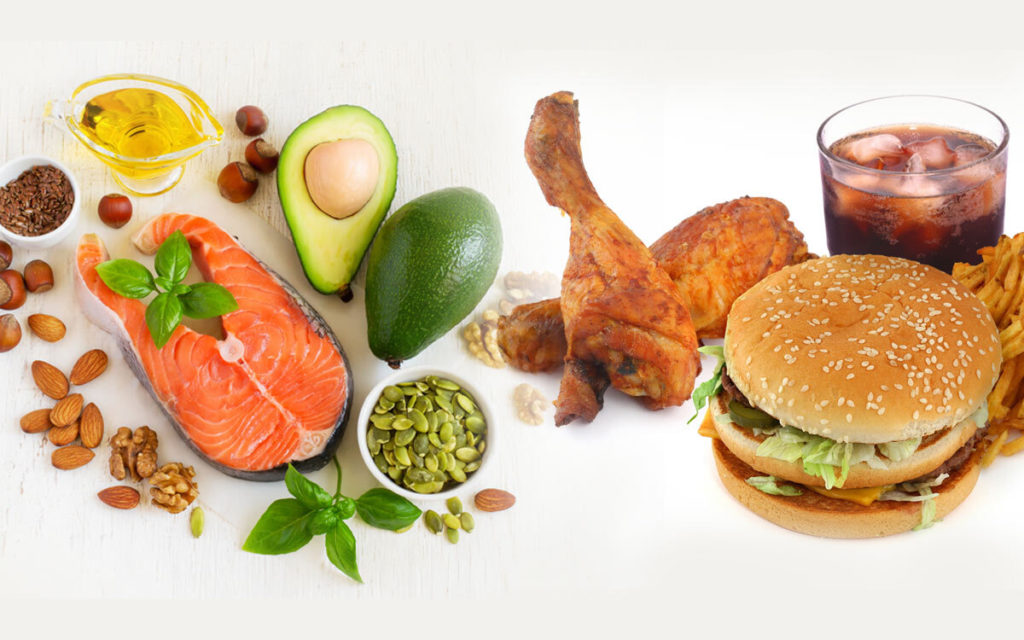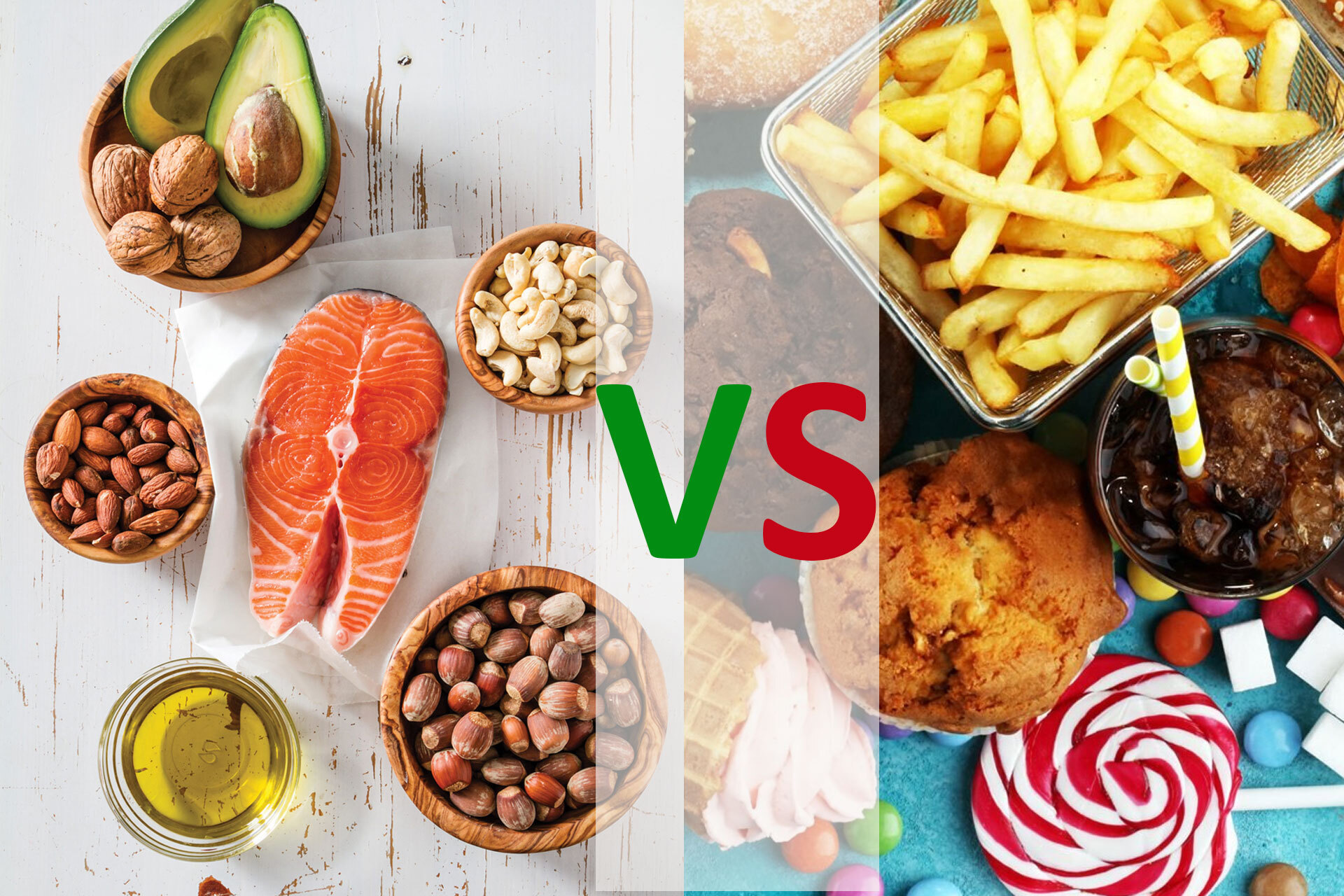Certain types of fats should be included in your diet. Which can be called good dietary fats. However, you should consume healthy fats rather than toxic fats. Fat is used by your body as a source of energy. It promotes the growth of nerve tissue and hormones while also reducing inflammation. Good dietary fats aid in the absorption of vitamins A, D, E, and K from your diet. They provide health advantages and may reduce your illness risk.
Obesity may be caused by eating too much fat. Fat calories are more quickly converted to body fat than carbohydrate or protein calories. They may also cause your hunger to be confused, making it difficult to know when you are full. Bad fats boost your blood pressure and total cholesterol. They may make you more susceptible to heart disease, diabetes, and some malignancies. You may also discover more healthy food-related articles here, all of which have been researched just for you.
A path to better health
Everyone’s calorie requirements are varied. Your doctor can assist you in determining how many calories you need on a daily basis. This will assist you in determining how many grams of fat you are allowed to ingest. The American Heart Association (AHA) advises that you consume fewer than 30% of your total daily calories from fat if you are overweight. For a 2,000-calorie diet, this translates to 65 grams of fat.
Fats that are “bad”
Saturated and Trans fats are harmful to your health. Unlike good dietary fats. Saturated fats should account for no more than 7% of your total daily calories. Trans fats should account for less than 1% of total calories. That’s less than 15 grams of saturated fat and less than 2 grams of Trans fat in a 2,000-calorie daily diet.

Saturated fats are found in several animal products in their natural state. Meat, poultry, eggs, and dairy products such as cheese, cream, and whole milk fall under this category. Saturated fat is found in palm, coconut, and other tropical oils, as well as cocoa butter. When liquid oils are converted to solid fats, Trans fats are formed. This is referred to as hydrogenation. A lot of processed foods include Trans fats. Trans fats must be included on nutrition labels by all food manufacturers. Foods may, however, contain up to.5 grams of Trans fat per serving while still showing 0 grams. Look for the phrase “hydrogenated oil” in the ingredients list.
Saturated fats should be limited, and Trans fats should be avoided. Fast food, fried foods, and snack foods are common sources. They may also be found in sweets and store-bought baked items. LDL (bad) cholesterol levels rise as a result of these harmful lipids. They lower the levels of HDL (good) cholesterol in your body.
Besides as a health conscious person, you should definitely know about the Eating Habits that are good for your health.
“Healthy” fats
Good dietary fats should be substituted with harmful fats. Good fats have been shown in studies to help decrease overall cholesterol levels. Omega-3 fatty acids are beneficial to one’s health. They may lower your chances of having a heart attack and reducing inflammation.
Canola, olive, and peanut oils all contain monounsaturated fats. They may be found in a wide range of nut oils and butters. These fats may also be found in avocados, legumes (beans and peas), and seeds.
Vegetable oils such as maize, sunflower, and safflower oil contain polyunsaturated fats. Soybeans, legumes, cereals, and nuts all contain them. These fats may also be found in seeds such as sesame and sunflower.
Seafood is a good source of omega-3 fatty acids. Salmon, herring, sardines, and mackerel are examples. Omega-3s may also be found in flaxseeds, flaxseed oil, and walnuts.
Consider the following:
You don’t need to eliminate all fat from your diet. However, you should keep your fat intake in check. Each gram of fat has 9 calories. The calories in carbs and proteins are more than doubled. Each gram has 4 calories.
Consume foods high in omega-3 fatty acids and unsaturated fats. Saturated and trans-fat-rich foods should be avoided.
Other suggestions include:
- Fast food should be avoided. Trans fats are nearly usually present.
- Fried meals should be avoided.
- Reduce the quantity of red meat you consume. Eat fish, poultry, and vegetable proteins instead.
- When baking, canola oil is a good choice.
- When cooking, use extra virgin olive oil. It may also be used as a spread on toast or in lieu of salad dressing.
- Make better snack choices. Instead of potato chips, consume a small handful of unsalted peanuts or edamame (soybeans).
- Avocado is a great addition to any sandwich or salad. Salads with nuts and garbanzo beans are also delicious.
- Instead of butter, use liquid or soft tub margarine. Choose margarine with a low saturated fat content and no trans-fat.
- You should know the health affect when it comes to the comparison between Healthy Food and Junk Food.
Questions to bring up with your doctor
- If I’m attempting to lose weight, what amount of fat should I consume?
- Should I take an omega-3 supplement to increase my intake of healthy fats?





I am really impressed with your writing skills and also with the
layout on your blog. Is this a paid theme or did you modify it yourself?
Either way keep up the nice quality writing, it’s rare
to see a nice blog like this one nowadays.
Thanks for your compliment. This is a paid theme.